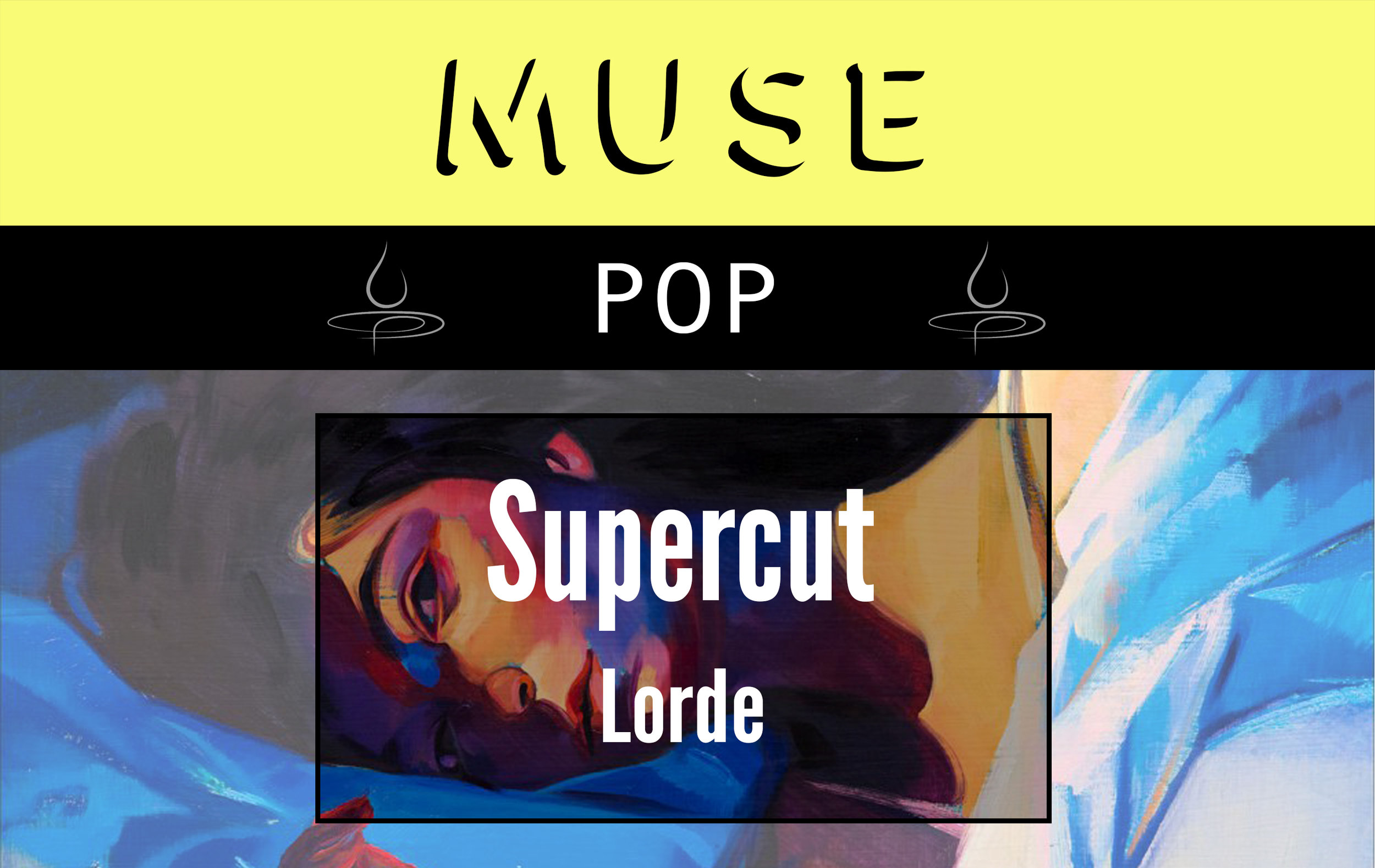MUSE Pop: Supercut by Lorde
BY CARLEY ESCHLIMAN
Supercut by Lorde
[Refrain]
'Cause in my head (in my head, I do everything right)
When you call (when you call, I'll forgive and not fight)
Looking back, Lorde sees the idealized version of her relationship. Gone are the times when she was rash in conversation, the failures and mistakes she participated in, the times when she was hesitant to forgive. Enough time has passed, equipping Lorde to be more optimistic—arguably, optimistic to a fault—about her lost love.
Because ours are the moments I play in the dark
We were wild and fluorescent, come home to my heart, uh
Harkening back to the song’s title, Lorde is mentally replaying a “supercut” of her previous relationship. The high moments, where their love was “wild and fluorescent,” are softening her emotions towards her ex. Her final thought—”come home to my heart”—is in stark contrast to the “Hard Feelings/Loveless” stanza: “I’m gonna mess your life up // Gonna wanna tape my mouth shut.”
In common culture, the pinnacle of emotional progress is summed up with the trite phrase: “forgive and forget.” And, these two elements are definitely present in Lorde’s recovery process—she forgets past ills and hints at the possibility of getting back together with her ex (“come home to my heart”).
But, does full recovery entail desires to rekindle lost loves? One could argue that true forgiving and forgetting means being willing to let someone have another shot.
However, most agree that starting anew with an ex-lover is almost always a poor choice. So, what do we do when we're repeatedly told to forgive and forget?
The first half of “forgive and forget” is most assuredly a well-known Christian ideal. Forgiveness is commanded to Christians throughout scripture; we are told explicitly to forgive as God forgave us. [1] However, the “forgetting” element, when approached Christianly, is less straightforward. In essence, the Christian tradition calls us to remember rightly, not to fully forget.Rightful remembrance does not sweep the ills of a past relationship under the rug like Lorde’s bright-eyed supercut; it allows for memories—even of past issues and incidents—to be free from the dehumanization of offenders. Remembering rightly allows all persons involved to keep their dignity and right for respect.Why should people be treated with dignity, even in the wake of harmful experiences? In Ephesians, a letter in the New Testament written by the Apostle Paul, it is said that we do not struggle against other humans (flesh and blood). Instead, our battles are against the unseen evil in this world. [2] Relying on this truth, rightful remembrance allows for the retention of respect for other individuals. Simply, our fight is not against them. Instead, we must struggle against the unjust and truly evil actions and practices we face. This frees us to go to the actual source of our hurt.Through a relationship with Christ, one has the freedom to have burdens shared. Whether it be the weight of a lost friendship, a non-mutual breakup, or domestic abuse, we can count on the Lord’s provisions of guidance and comfort.These provisions do not automatically wipe our memories of our hurt or take away our real pain, but they do help to orient our hearts and thoughts towards our real adversaries and give us the freedom to rightfully remember.
1. Ephesians 4:32
2. Ephesians 6:12
About Supercut
Melodrama, New Zealand native Lorde’s second full-length album, chronicles the heights and depths of a passionate, long-term romance. When listened to from start to finish, Melodrama artfully displays the realities of deep relationship; in “The Louvre,” a lovesick Lorde—who wants all to know of her new-found affections—amplifies her heartbeat by megaphone and “broadcasts the boom, boom, boom, boom // and make[s] them all dance to it.” Later in the album, “Hard Feelings/Loveless” weaves together the story of the break-up; a heartbroken Lorde sings about the process of getting over lost love: “But I still remember everything, how we’d drift buying groceries, how you’d dance for me // I’ll start letting go of little things 'til I’m so far away from you.”
“Supercut,” the 9th work in Melodrama, dons a popish sound with bright tones and an upbeat tempo. However, the pop vibe doesn’t stick around with a closer listen to the lyrics. Despite the song’s high-energy, “Supercut” is lyrically dense and highly emotive. What’s more, through listening to “Supercut” from a Christian perspective, one can be reminded of the importance of remembering well.
